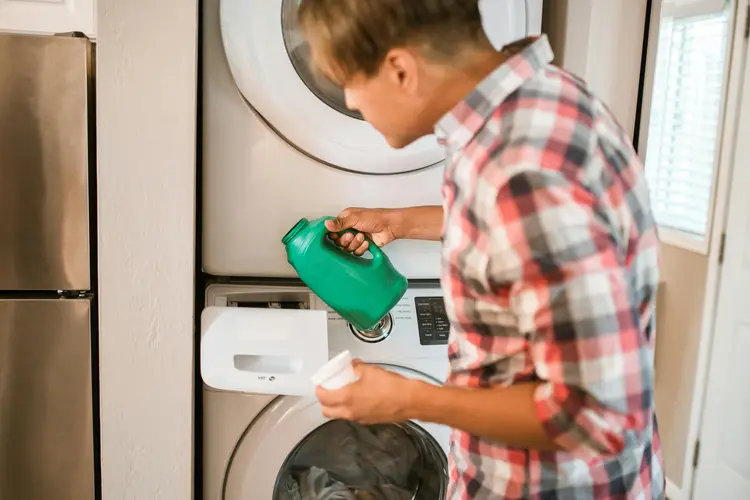What is the purpose of fabric softener?
Fabric softener adds a soft, fresh scent to clothes while also reducing static and making fabrics feel softer. It’s typically added to the washing machine during the rinse cycle. By lowering friction between the fibers, it creates a smoother texture and reduces static cling by coating the fibers with a thin layer of oil, further minimizing friction.
Are there any risks associated with fabric static?
No, fabric static isn’t dangerous. It occurs when electrons build up on the surface of clothing fibers, causing them to stick together and creating an annoying sensation or sound. While it can be bothersome, it doesn’t pose any serious risk. However, some people with sensitive skin may experience mild irritation from static sparks. In those cases, using fabric softeners or anti-static products can help reduce static and prevent skin irritation.
What toxins are found in generic fabric softeners?
Many generic fabric softeners contain various ingredients, some of which may be considered toxic. Common ingredients include:
- Quaternary Ammonium Compounds (Quats): These are often used as softening and antistatic agents but have been linked to skin irritation and respiratory issues in some people.
- Fragrance: Fabric softeners often include fragrances that may contain phthalates, a group of chemicals associated with health concerns like hormonal disruptions and developmental problems.
- Petroleum-Based Oils: Some fabric softeners contain petroleum-based oils, which can cause skin irritation and respiratory issues in certain individuals.
- Ethanol and Propylene Glycol: These solvents can also lead to skin irritation for some people.
While agencies like the U.S. Environmental Protection Agency (EPA) and the Consumer Product Safety Commission (CPSC) generally consider the levels of these ingredients safe, some individuals may still experience negative health effects. It’s a good idea to read labels carefully and choose fabric softeners that are free of harmful chemicals whenever possible.
Is it safe to use fabric softener on baby clothes and linens?
It’s best to avoid using fabric softeners on baby clothes and linens since they contain harsh chemicals that can irritate a baby’s delicate skin. Instead, opt for a gentle detergent specifically designed for babies or consider air-drying the clothes to keep them soft and reduce the risk of irritation.
Is it okay to use fabric softener on blankets?
It really depends on the type of blanket and what you want to achieve. Some blankets, particularly those made from synthetic materials or fleece, can benefit from the softening effects of fabric softener. However, natural fibers like wool, cotton, and silk might lose their natural softness and insulation if you use fabric softener. Plus, fabric softeners can clog the fibers, making the blanket less effective at keeping you warm.
If you choose to use fabric softener, make sure to check the care label and follow the manufacturer’s instructions. If you’d rather avoid it, consider air-drying your blanket or using natural alternatives like vinegar or baking soda in the rinse cycle.
What are some natural alternatives to fabric softeners?
Here are some natural alternatives to fabric softeners:
- Vinegar: Add 1/2 cup of white vinegar during the rinse cycle to help soften clothes and cut down on static.
- Baking Soda: Use 1/2 cup of baking soda in the wash cycle to soften fabrics and eliminate odors.
- Essential Oils: A few drops of your favorite essential oil in the rinse cycle can add a fresh, natural scent.
- Lemon Juice: Adding 1/2 cup of lemon juice during the rinse cycle not only softens clothes but also gives them a pleasant fragrance.
- Wool Dryer Balls: Tossing wool dryer balls into the dryer naturally softens clothes and helps reduce static cling.
You may also like:
- Supima Cotton: Properties, Production, and Origins
- Using a Seam Ripper: A Step-by-Step Guide
- Organza Fabric: Traits, Manufacturing Process, and Origins
- Different Types of Sewing Machines
- Micromodal Fabric: Characteristics, Production, and Origins
- Sewing Machine Parts And Functions
- Count of Yarn: Explanation and Varieties
- Yarn Manufacturing Process
- Varieties of Woven Fabrics and Their Applications
- Non Woven Geotextile Fabric
- What is Sisal Fiber? Properties, Structure, and How It Made?
- How to Tie Dye Shirts: A Step-by-Step Guide
Share this Article!

